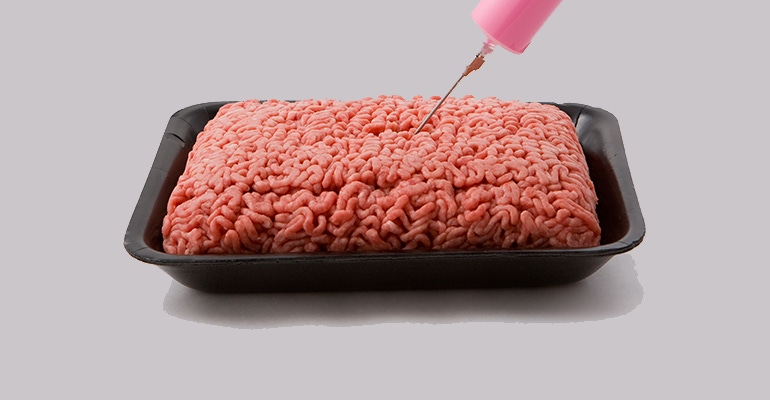5@5: Organic diet severely lowers pesticide exposure | USDA approves 'pink slime' as beef
Each day at 5 p.m. we collect the five top food and supplement headlines of the day, making it easy for you to catch up on today's most important natural products industry news.
February 12, 2019

Can eating organic lower your exposure to pesticides?
A new California-based study followed 16 people who transitioned to a 100 percent organic diet and found that their exposure to four classes of pesticides was reduced an average of 60 percent over just six days. Following the study’s release, Friends of the Earth announced it would be launching a campaign called Organic for All, which aims to make organic options more widely affordable. The study notably did not analyze levels of the controversial herbicide glyphosate because laboratory methods for detecting it are still in development. Read more at Civil Eats …
USDA says filler once known as ‘pink slime’ can be labeled ground beef
The ground beef filler that gained notoriety earlier this decade for both containing ammonia and looking exactly like strawberry soft-serve ice cream is back—and it’s now technically beef. USDA just ruled that Beef Products Inc. can call this substance “ground beef” on public-facing labels, citing the meat company’s regulatory compliance as the main reason behind this decision. Read more at MNN …
Whole Foods is becoming ‘Whole Paycheck’ once again
Whole Foods price tags are headed back up according to an internal company email announcing price increases for 550 products. One spokesperson responded to the leak by stating that the company had “experienced increased costs from suppliers due to materials, labor and transportation,” and that the rise in prices coincided with other shopper discounts and Amazon Prime benefits, but the news is still highly unwelcome for natural products consumers. Read more at Fast Company …
Your mouth helps you smell tasty foods
Did you know that the odors released when you chew or drink a food or beverage are just as crucial when your brain is deciding whether or not a certain food smells good? A new study suggests that there are two distinct ways of smelling, and that chewing or drinking induces the dominant one. As researchers note, this makes sense from an evolutionary perspective—if we were satisfied by merely smelling food, we would be less likely to eat it for sustenance. Read more at Futurity …
Plastic pollution seems like such an overwhelming problem. What can I do?
Consumers are understandably concerned about the effects of plastic waste on the environment, but many are at a loss when it comes to reducing consumption of the ubiquitous material. Fortunately, companies are beginning to offer biodegradable, recyclable or eco-friendlier packaging options, giving consumers the ability to pick and choose which corporate entities to support. The law has even stepped in in many cities nationwide in the form of bans on single-use plastic such as plastic bags and straws—this, above all else, is “remarkably effective at reducing plastic waste” according to the executive director of California-based Plastic Pollution Coalition. Read more at Grist …
You May Also Like


